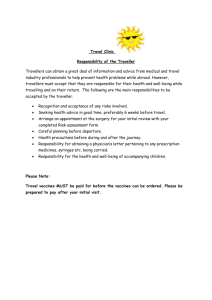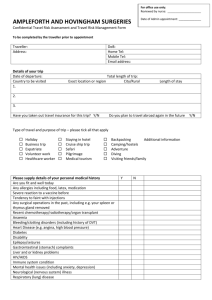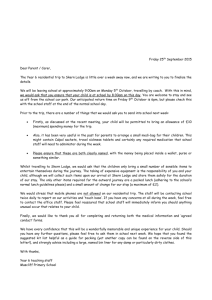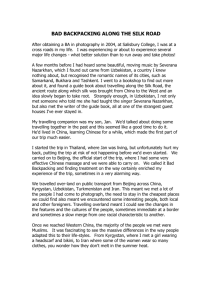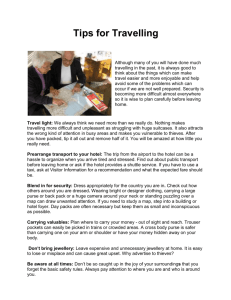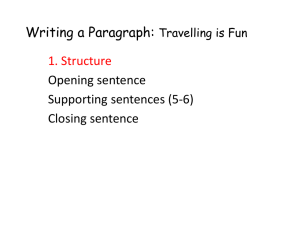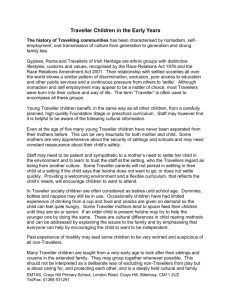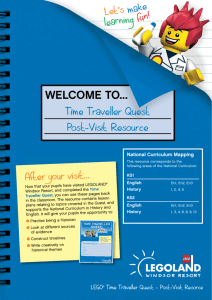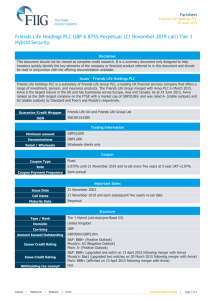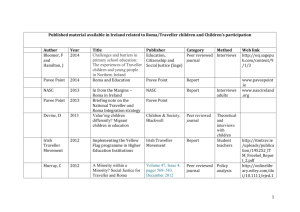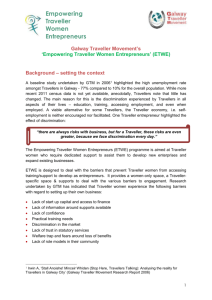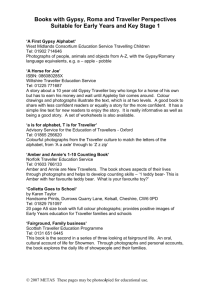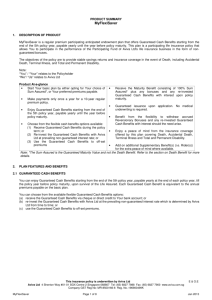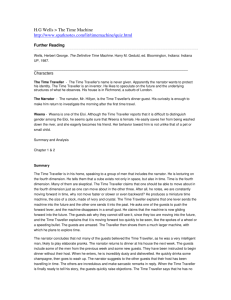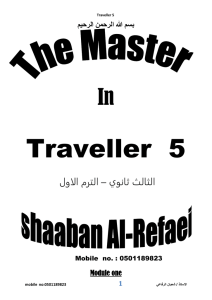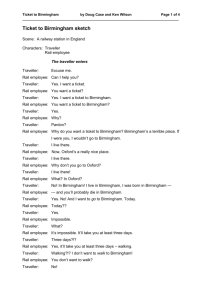High risk travel - University of Exeter
advertisement
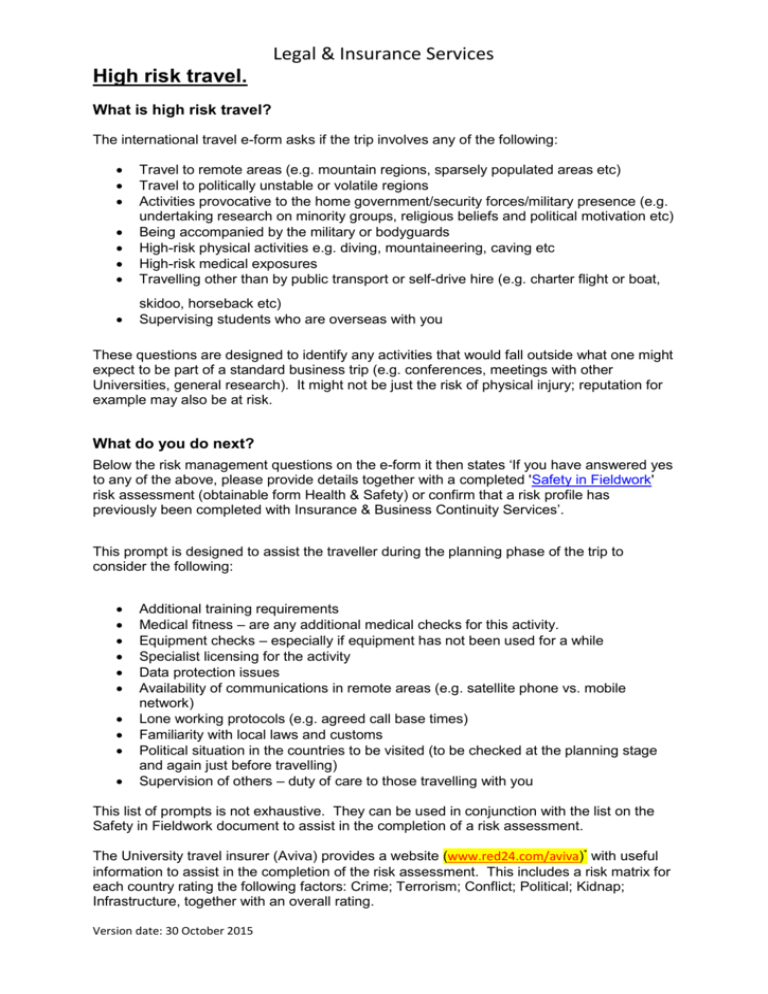
Legal & Insurance Services High risk travel. What is high risk travel? The international travel e-form asks if the trip involves any of the following: Travel to remote areas (e.g. mountain regions, sparsely populated areas etc) Travel to politically unstable or volatile regions Activities provocative to the home government/security forces/military presence (e.g. undertaking research on minority groups, religious beliefs and political motivation etc) Being accompanied by the military or bodyguards High-risk physical activities e.g. diving, mountaineering, caving etc High-risk medical exposures Travelling other than by public transport or self-drive hire (e.g. charter flight or boat, skidoo, horseback etc) Supervising students who are overseas with you These questions are designed to identify any activities that would fall outside what one might expect to be part of a standard business trip (e.g. conferences, meetings with other Universities, general research). It might not be just the risk of physical injury; reputation for example may also be at risk. What do you do next? Below the risk management questions on the e-form it then states ‘If you have answered yes to any of the above, please provide details together with a completed 'Safety in Fieldwork' risk assessment (obtainable form Health & Safety) or confirm that a risk profile has previously been completed with Insurance & Business Continuity Services’. This prompt is designed to assist the traveller during the planning phase of the trip to consider the following: Additional training requirements Medical fitness – are any additional medical checks for this activity. Equipment checks – especially if equipment has not been used for a while Specialist licensing for the activity Data protection issues Availability of communications in remote areas (e.g. satellite phone vs. mobile network) Lone working protocols (e.g. agreed call base times) Familiarity with local laws and customs Political situation in the countries to be visited (to be checked at the planning stage and again just before travelling) Supervision of others – duty of care to those travelling with you This list of prompts is not exhaustive. They can be used in conjunction with the list on the Safety in Fieldwork document to assist in the completion of a risk assessment. The University travel insurer (Aviva) provides a website (www.red24.com/aviva)* with useful information to assist in the completion of the risk assessment. This includes a risk matrix for each country rating the following factors: Crime; Terrorism; Conflict; Political; Kidnap; Infrastructure, together with an overall rating. Version date: 30 October 2015 Legal & Insurance Services In order to help you understand the risks in the country you are visiting and please refer Red 24 site www.red24.com/aviva Step 1: To register as a user on the Aviva page, please enter the policy number 100003933GPA into the box indicated and then click on the ‘proceed’ button. Step 2: To complete the registration process there are a few fields of personal information to complete as well as requesting you to set a password against your email address. These will then become your log in details to be used for all future log ins. After you are done, click the ‘SaveForm’ button. Please note you will also be required to read and accept the terms and conditions and privacy policy in order to proceed. Step 3: You’re done! You can now access and sign up to the range of red24 services under our Aviva policy for free. Please note there is an option in the top right hand side of the page to change your personal preferences. Step 4: To log in again in the future all you need to do is put your email address and password you have set into the boxes on the right hand side of the page. Please note: You do not need to register again. Who is responsible? The traveller is responsible for his/her own safety. He/she must take reasonable steps to ensure the trip is successful. Those supervising groups of students or staff have an additional responsibility to ensure that all travellers have sufficient information to be able to manage their own safety. This can be done by sharing with the group details of the risks that have been identified and the measures being taken to address these issues. The University – i.e. staff who support the traveller – have a duty of care toward the traveller to enable them to identify risks and take reasonable steps to mitigate these risks. The accepted way of doing this is by reviewing the risk assessment completed by the traveller. When to refer to Insurance & Business Continuity Services You are unsure whether an activity is high risk – we think have probably seen it all and are rarely taken by surprise; we haven’t come across any activity we can’t insure yet. Please don’t hesitate to contact us to discuss your trip. Trips that exceed 12 months in duration If travelling to countries rated as ‘Overall - Extreme’ on the Red 24 website Version date: 30 October 2015
